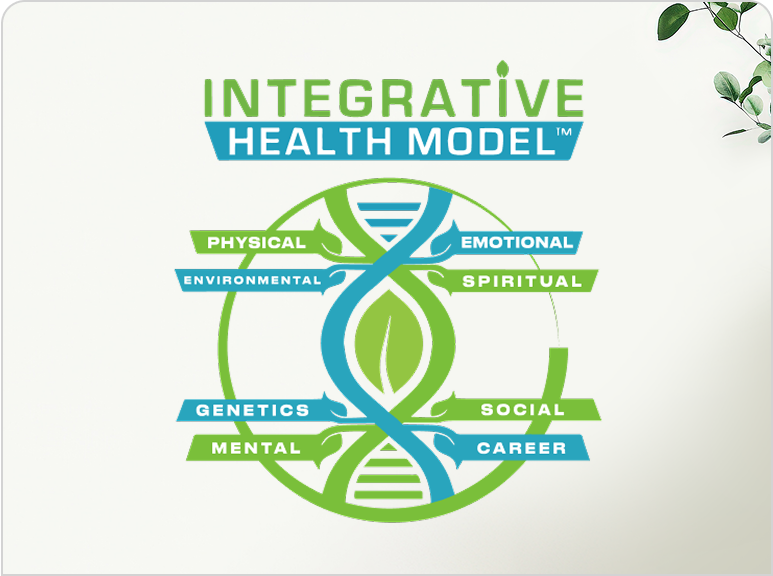Family Medicine Pros and Cons: Benefits & Challenges

The pros and cons of family medicine really depend on what you're looking for in a healthcare experience. On the plus side, family medicine offers comprehensive, lifelong care for people of all ages meaning one doctor can care for your whole family, build strong relationships, and help manage both preventive and chronic conditions. These doctors are highly versatile and often serve in underserved areas, making healthcare more accessible.
What Is Family Medicine?
Family medicine is a type of medical care that focuses on treating the whole family. Family doctors are trained to care for patients of every age. They can deliver babies, treat children, help adults, and care for older people too.
These doctors are like the "jack of all trades" in medicine. They know a little bit about everything in healthcare. This makes them different from specialists who focus on just one part of the body or one type of problem.
Family medicine doctors often become your main doctor. They get to know you and your family over many years. This helps them understand your health better and catch problems early.
The Major Pros of Family Medicine
Comprehensive Care for the Whole Family
One of the biggest benefits of family medicine is getting care for everyone in your family in one place. Your family doctor can:
- Take care of newborn babies
- Give vaccines to children
- Help teenagers with health questions
- Manage adult health problems
- Care for seniors with multiple conditions
This means fewer doctor visits to different places. You save time and money by having one doctor who knows your whole family's health history.
Strong Long-Term Relationships
Family doctors build deep relationships with their patients over time. A 2018 review found that patients who had a regular doctor relationship for more than 15 years had about 30% fewer emergency room visits and hospital stays, plus 25% lower death rates compared to those who had a regular doctor for just 1 year.
This long-term relationship means:
- Your doctor knows your health history
- They understand your family's health patterns
- They can spot health changes quickly
- You feel more comfortable talking about health problems
Broad Medical Knowledge
Family doctors learn about many different areas of medicine during their training. Family medicine residents get training in six major medical areas: pediatrics, women's health, internal medicine, psychiatry and brain health, surgery, and community medicine.
This broad training helps them:
- Handle many different health problems
- Know when to refer you to a specialist
- Understand how different body systems work together
- Provide both acute and preventive care
Better Access to Healthcar
Family physicians provide most of the care for America's underserved rural and urban populations. They often work in areas where specialists are hard to find.
Benefits include:
- More available appointments
- Care in rural areas
- Lower costs than specialists
- Less waiting time for routine care
Preventive Medicine Focus
Family doctors don't just treat illness - they help prevent it too. They focus on:
- Regular health screenings
- Immunizations
- Health counseling
- Lifestyle advice
- Early detection of diseases
Research shows that adding family physicians to a population brings more health benefits than adding any other type of doctor. For every 10 additional family physicians per 100,000 people, there are 15 fewer deaths and 40 fewer hospitalizations, according to research published by the National Center for Biotechnology Information.
Career Flexibility and Variety
For doctors, family medicine offers many career paths. Family physicians can work in many different settings - from private practice to hospitals, from rural emergency rooms to urban urgent care centers.
Family doctors can also specialize in areas like:
- Sports medicine
- Women's health
- Emergency medicine
- Public health
- Pain management
Better Work-Life Balance
Family medicine tends to offer better work-life balance compared to other medical specialties. About 75% of family doctors report being satisfied with their careers, and 79% say they have a positive sense of well-being.
This happens because:
- More predictable hours
- Less night call than surgeons
- Variety prevents burnout
- Strong patient relationships provide satisfaction
The Cons of Family Medicine
Limited Depth in Specialized Areas
The biggest challenge with family medicine is that doctors can't be experts in everything. Some people think family medicine training is too superficial compared to specialists who spend years focusing on one area.
This means:
- Complex problems need specialist referrals
- Less expertise in rare conditions
- May miss subtle signs that specialists would catch
- Patients sometimes need multiple doctors anyway
Heavy Workload and Time Constraints
Family doctors often have very busy schedules. Family physicians work an average of 50 hours per week, including 40 hours of direct patient care and 9.5 hours of administrative work.
Challenges include:
- Seeing over 90 patients per week
- Limited time with each patient (often 15-20 minutes)
- Lots of paperwork and admin tasks
- Being on-call for emergencies
Lower Income Compared to Specialists
Money is a real concern for many family doctors. Family medicine physicians make an average of $255,000 per year, while specialists average $368,000, according to data from the U.S. Bureau of Labor Statistics.
The income gap exists because:
- Family doctors do fewer high-paying procedures
- Insurance pays less for routine care
- Specialists can charge more for their expertise
- Male physicians earn on average $55,500 more than female physicians
Lack of Professional Recognition
Many family physicians report a lack of respect for family medicine within the medical profession. This happens because:
- Shorter residency training (3 years vs. 6+ for specialists)
- Lower salaries suggest less value
- Some see family medicine as "easier" than specialty medicine
- Generalists sometimes get less recognition than specialists
Administrative Burden
Family doctors face increasing paperwork and administrative tasks. Many family physicians report that administrative burdens take them away from rewarding face-to-face time with patients.
Problems include:
- Insurance paperwork
- Electronic health records
- Quality reporting requirements
- Billing and coding complexity
Emotional Challenges
Caring for whole families over many years can be emotionally demanding:
- Dealing with difficult diagnoses
- Watching patients and families struggle
- Feeling responsible for many people's health
- Burnout from seeing too many patients
Family Medicine vs. Other Medical Specialties
Family Medicine vs. Internal Medicine
Internal medicine doctors focus only on adults, while family doctors care for all ages. Internal medicine doctors typically see only adults for diagnosis and treatment, while family medicine focuses on the health of the whole family.
Family Medicine Advantages:
- Treats entire families
- Includes pediatric care
- More variety in patient types
- Better for family continuity
Internal Medicine Advantages:
- Deeper focus on adult diseases
- More subspecialty options
- Higher income potential
- More research opportunities
Family Medicine vs. Pediatrics
Pediatricians specialize only in children, while family doctors treat everyone.
Family Medicine Advantages:
- Continues care into adulthood
- Knows family health history
- More convenient for families
- Broader medical training
Pediatric Advantages:
- Specialized in child development
- Better at pediatric procedures
- More focused expertise
- Stronger relationships with kids
How to Choose Family Medicine
For Patients Choosing a Family Doctor
Consider family medicine if you want:
- One doctor for your whole family
- Long-term healthcare relationships
- Comprehensive preventive care
- Convenient, accessible care
- Help coordinating with specialists
Choose a specialist instead if you have:
- Complex medical conditions
- Rare diseases
- Need for specialized procedures
- Chronic conditions requiring expert care
For Medical Students Considering Family Medicine
Family medicine might be right for you if you:
- Like variety and learning new things
- Want to build long-term patient relationships
- Enjoy working with all age groups
- Value work-life balance
- Want to make a difference in your community
Consider other specialties if you:
- Prefer focusing deeply on one area
- Want higher income potential
- Enjoy complex procedures
- Like hospital-based medicine
- Want prestige and recognition
The Future of Family Medicine
Growing Demand
The U.S. expects to face a shortage of 21,400 to 55,200 primary care physicians by 2033. This shortage creates opportunities for family doctors.
Technology Improvements
New technology is helping family doctors:
- Electronic health records improve care coordination
- Telemedicine expands access to care
- AI tools help with diagnosis and treatment
- Mobile health apps engage patients
Payment Model Changes
Healthcare is shifting toward value-based care:
- Doctors get paid for keeping patients healthy
- Prevention becomes more important
- Care coordination is rewarded
- Patient satisfaction affects payments
Integration with Other Approaches
Many family medicine practices are now offering integrative approaches. For example, some practices combine traditional family medicine with naturopathic medicine and functional medicine to provide more comprehensive care.
This integration can include:
- Nutritional counseling
- Holistic treatment approaches
- Environmental medicine
- Preventive care programs
Making the Right Choice
Questions to Ask Yourself
Before choosing family medicine, consider:
- Do I want one doctor for my whole family?
- Am I comfortable with a generalist approach?
- Do I value long-term relationships with my doctor?
- Am I interested in preventive care?
- Do I have complex medical conditions that need specialists?
What to Look for in a Family Doctor
When choosing a family physician, consider:
- Board certification in family medicine
- Hospital affiliations
- Office location and hours
- Insurance acceptance
- Communication style
- Staff helpfulness
- Technology use
Red Flags to Avoid
Be cautious of practices that:
- Rush through appointments
- Don't listen to your concerns
- Refuse to coordinate with other doctors
- Have poor communication
- Lack proper credentials
- Don't keep up with medical advances
Financial Considerations
For Patients
Family medicine can be cost-effective because:
- Lower costs than specialists
- Fewer unnecessary referrals
- Better preventive care reduces long-term costs
- Coordinated care prevents duplicate tests
For Doctors
According to 2022 data, the average family physician makes $274,359 per year. Starting doctors make about $236,079, while experienced doctors with 20+ years make $292,373.
Income varies by:
- Geographic location
- Practice type (private vs. employed)
- Patient volume
- Additional services offered
Common Myths About Family Medicine
Myth: Family doctors aren't as good as specialists
Truth: Family doctors receive extensive training and are experts in their field. They know when to refer to specialists and provide excellent care for most conditions.
Myth: You need different doctors for different family members
Truth: Family doctors are trained to care for patients of all ages and can handle most health needs for the entire family.
Myth: Family medicine is just basic healthcare
Truth: Family doctors handle complex medical conditions, coordinate care, and provide comprehensive services including minor procedures.
Myth: Family doctors make less money because they're not as skilledTruth: Lower income reflects the healthcare payment system, not skill level. Family doctors provide essential care that keeps people healthy.
Final Thoughts
Family medicine offers many benefits, including comprehensive care, long-term relationships, and convenient access to healthcare. However, it also has challenges like limited specialization, heavy workloads, and lower income potential.
The choice between family medicine and other specialties depends on your personal needs, preferences, and health situation. For many people, the benefits of having a family doctor who knows them well and can coordinate their care outweigh the drawbacks.
Whether you're considering family medicine as a career or choosing it for your healthcare needs, understanding both the pros and cons helps you make an informed decision. The future of family medicine looks bright, with growing demand, improving technology, and better integration with other healthcare approaches.
If you're interested in a more comprehensive approach to family healthcare, consider exploring integrative medicine options that combine traditional family medicine with natural and holistic treatments.
Remember, the best healthcare choice is the one that fits your specific needs, values, and circumstances. Take time to research your options and talk with healthcare professionals to make the decision that's right for you.
You May Also Like




.png)

.png)



%201.png)



.png)

.png)



.png)
.png)
.png)
.png)
.png)
.png)
.png)
.png)

.png)
.png)
.png)
.png)

.png)
.png)

.png)
.png)






.png)




.png)
.png)
.png)

.png)

.png)